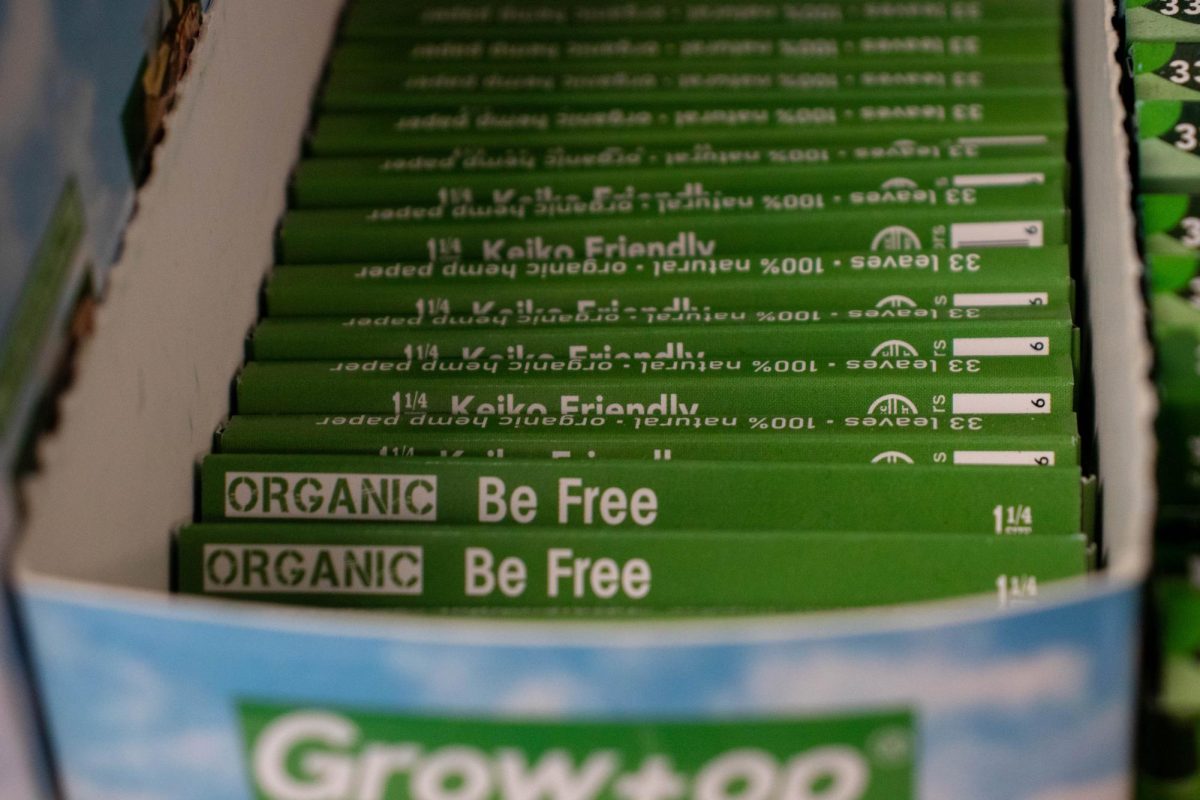In two years, cannabis use has gone from being outlawed before August 2023 to being available for sale in retail stores starting in early 2025.
However, the Office of Cannabis Management (OCM) has not finished setting regulations or begun distributing licenses to legally sell recreational cannabis outside of tribal reservations.
Some of the changes made in Minnesota since the legalization of cannabis include implementing social equity business licenses and changing laws around what justifies a police search of a car.
The Rec Center, located in Dinkytown, sells THC- and CBD-derived products, but cannot sell cannabis flower or any smokable cannabis products until regulations are set and it gets a license, according to employee Bailey Alberda.
“We get questions about it every single day,” Alberda said. “Almost every customer that comes in is asking for something smokable.”
Gov. Tim Walz signed a law in May expediting the launch of cannabis sales in Minnesota. The law allows social equity applicants, selected through a lottery system, to begin growing cannabis by the end of 2024 to guarantee supplies for when retail sales begin in 2025.
Those who received social equity verification can apply for the program starting July 24. These applications go through a vetting process before being entered into the lottery, according to the Minnesota Office of Cannabis Management.
Eligibility for social equity verification is determined by many factors, including past cannabis convictions, veteran status or residence in an area with high cannabis enforcement rates.
Jack Pfaffinger, an employee at the Rec Center, said the social equity program is a step in the right direction. He added that once people are allowed to grow cannabis, the next question is who can sell it.
“These people who put their heart, soul, everything into cultivating or growing, where can they bring their medicine? How can they get it to the patients?” Pfaffinger said.
In addition to the social equity program, lawmakers codified a ruling from the Minnesota Supreme Court dictating that police officers cannot search a car based on the smell of cannabis alone.
Under the new law, officers must use other tools such as observation from what they can see in plain view showing recent cannabis use or interviewing the driver to justify a search or a sobriety test, according to Mike Hanson, director of the Minnesota Department of Public Safety’s Office of Traffic Safety.
After cannabis was legalized and before this codification, it was uncertain whether officers could search based on only the smell of cannabis, Hanson said.
“Many agencies were really not sure what they could or could not do,” Hanson added.
Hanson said the Office of Traffic Safety’s biggest concern is impaired drivers.
“Think about cannabis and cannabis products the same way you think about alcohol,” Hanson said. “Impaired is impaired, whether it’s alcohol, cannabis or whatever.”
Businesses like the Rec Center have seen more interest from customers regarding cannabis products since legalization, Alberda said.
“My manager has said it’s gotten a little bit busier since people are more aware of the laws now, understanding it’s legal, and getting more comfortable with using it as it is becoming legal,” Alberda said.
Pfaffinger said the stigma surrounding cannabis is shifting as people learn more about it.
“Things are headed in the right direction in terms of acceptance,” Pfaffinger said. “The community is going to have proper knowledge and a safe place to use and a safe place to get their medicine, and really live the life they need to live.”









Mary Focht
Jul 23, 2024 at 8:48 pm
Great article with good perspective, enlightening!